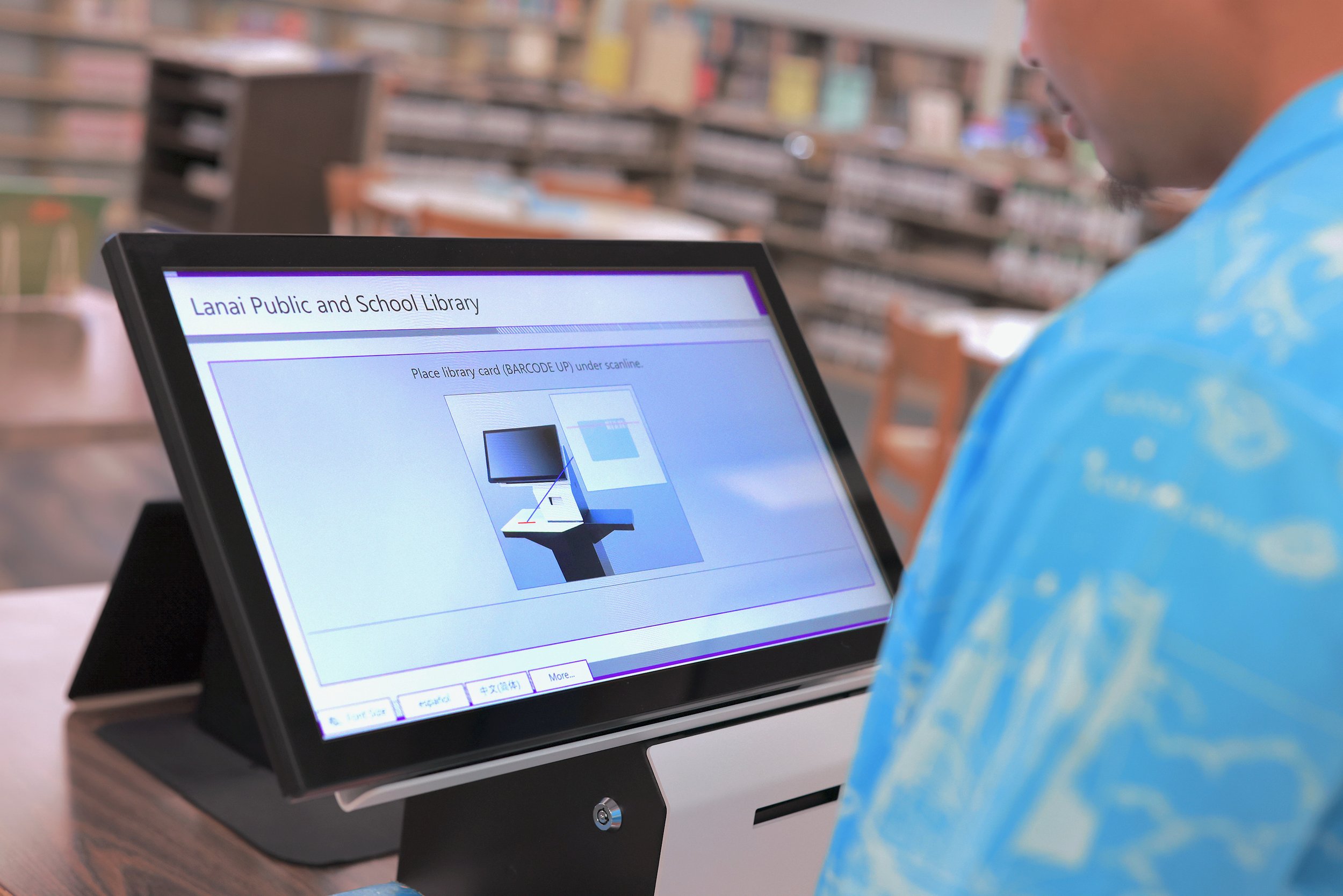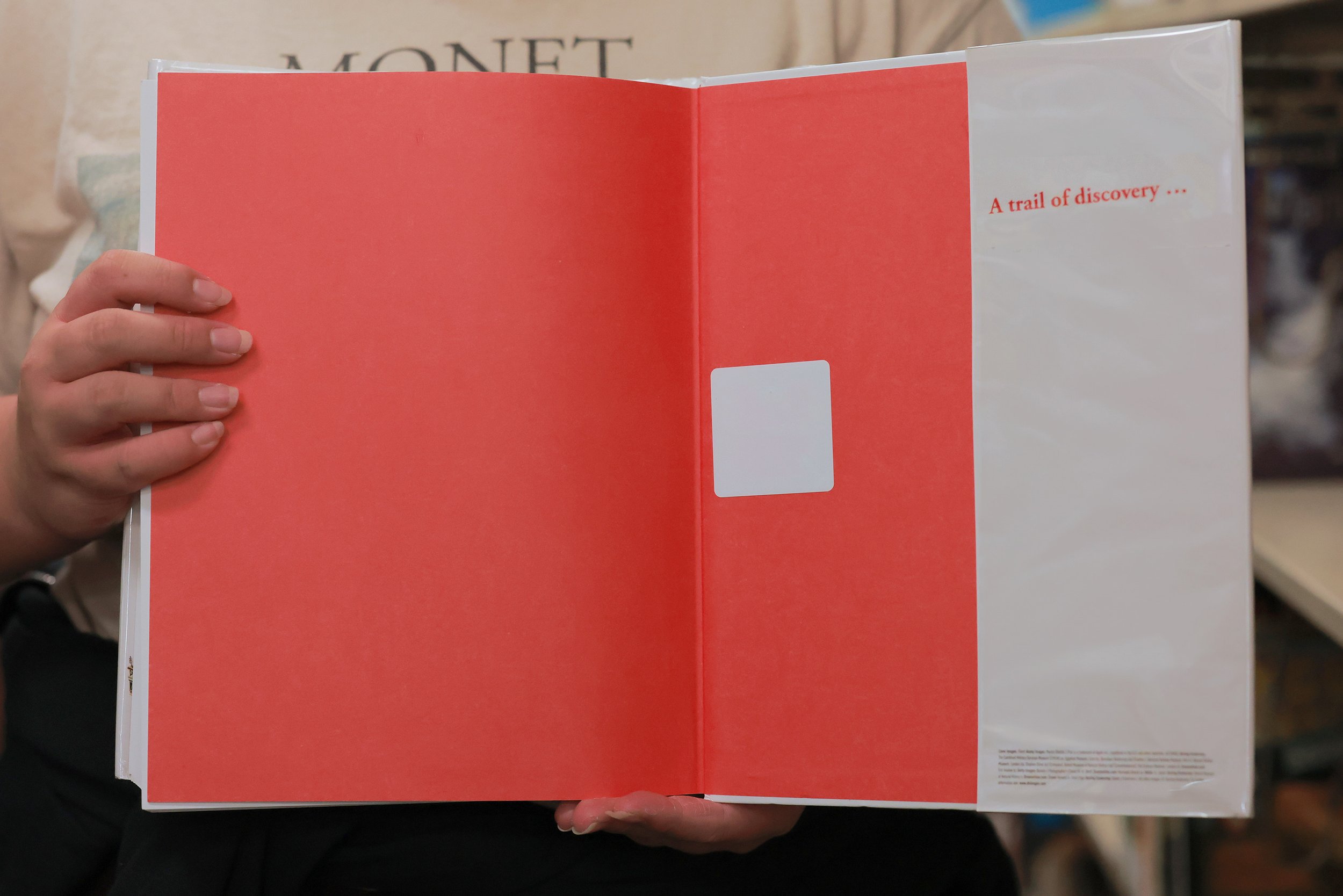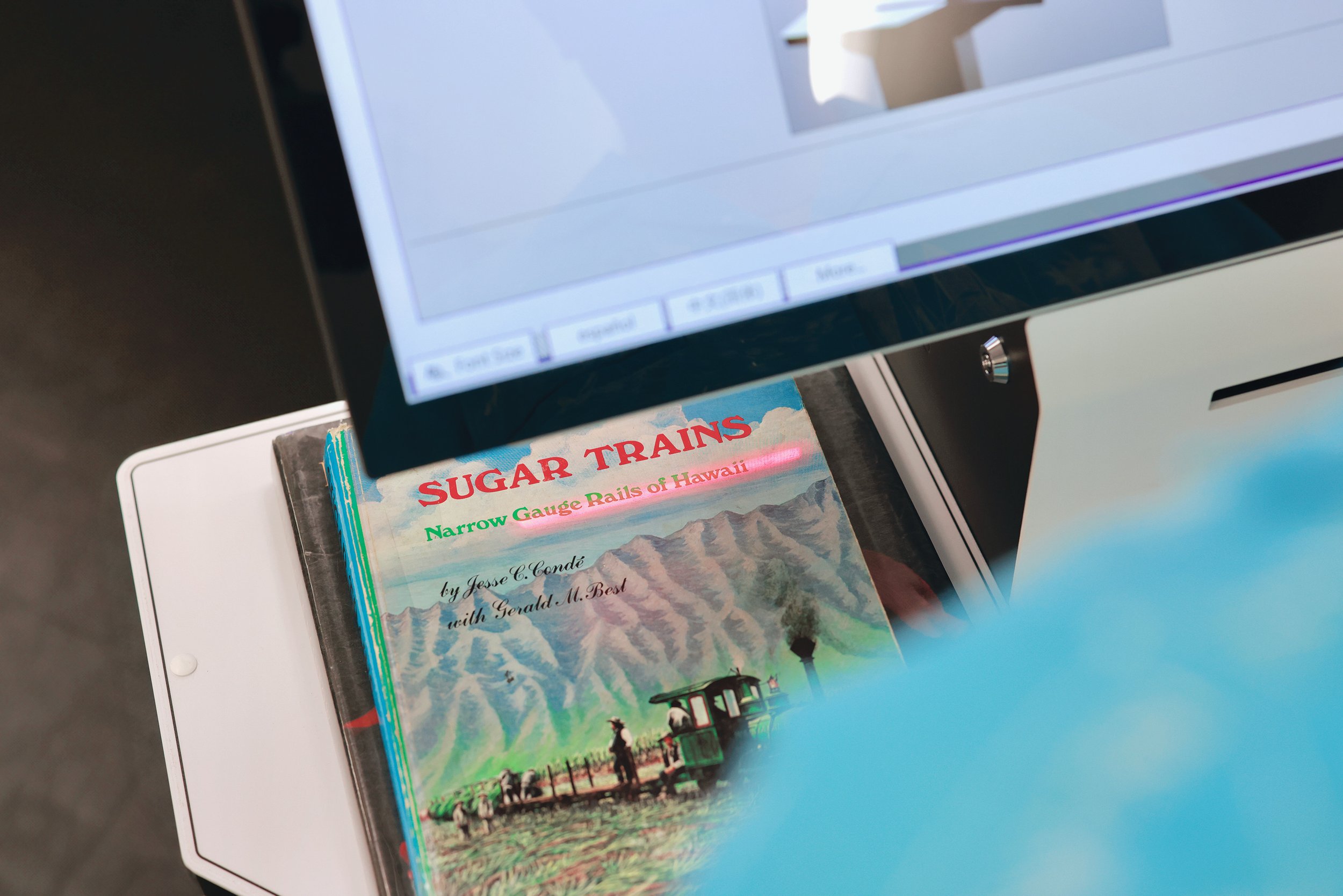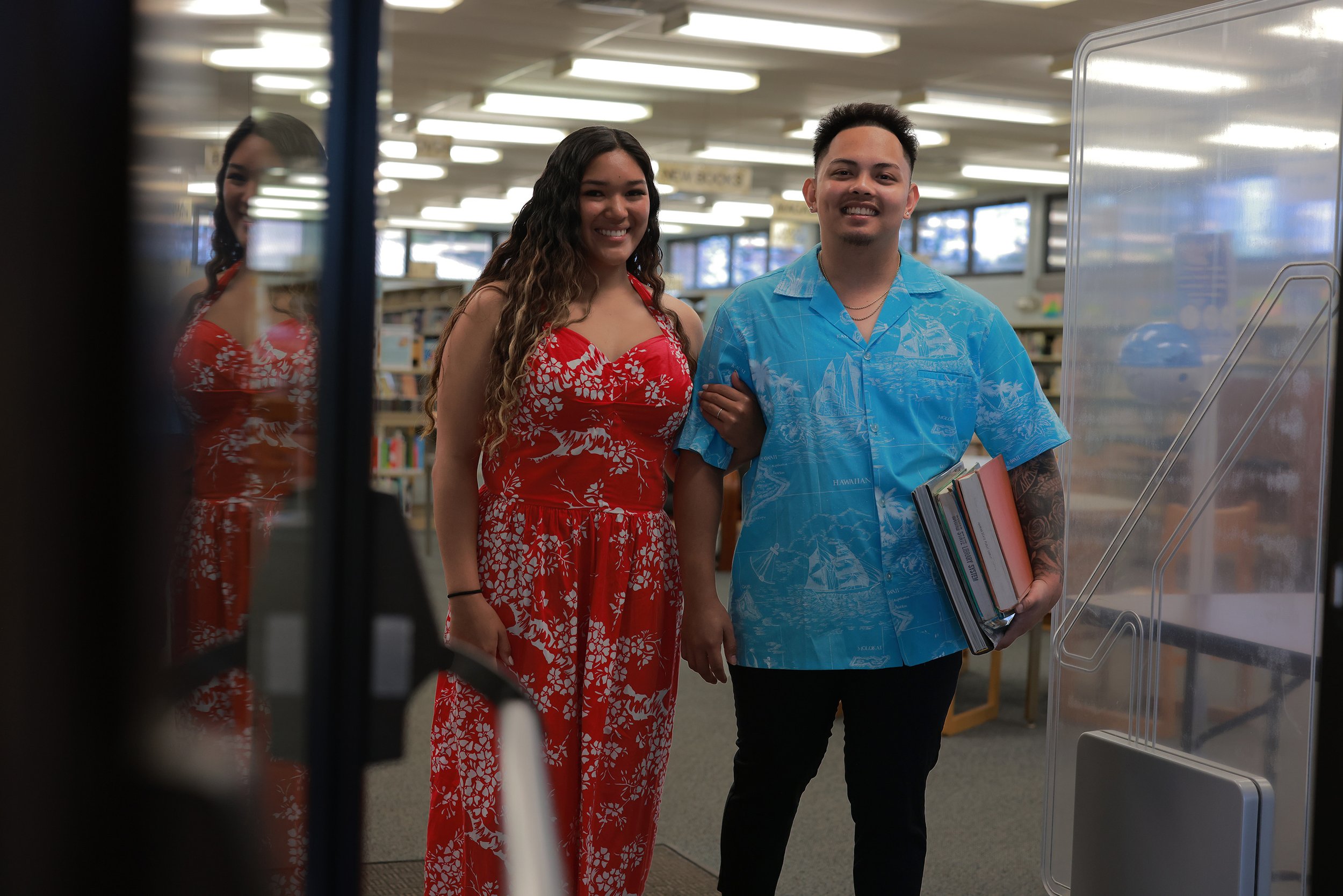From Stamps to Scans: Lāna‘i Library Steps Into the Future (With 1970s Technology)
By Anthony Kaauamo





The Lāna‘i Public and School Library, a staple of island intellect and a bastion of books, is breaking the mold. As part of a statewide initiative, this humble haven of knowledge is ditching the old-school stamp-and-stack method for the shiny, new radio-frequency identification (RFID) technology.
Developed in the 1970s, RFID is a radio wave-based technology originally designed for tracking goods and managing inventory in various sectors, including industrial and retail environments. It operates by using radio waves to communicate between a tag, which stores information about an object, and a reader.
RFID technology will be implemented across a wide range of library materials, such as books, DVDs, CDs and other items. This innovation introduces a self-checkout station, enabling patrons to independently check out their selections by scanning a library card and placing items on an RFID reader. Remarkably, the system can process multiple items simultaneously, capable of scanning up to 14 inches worth of books in a single transaction. This efficiency not only accelerates the checkout process but also enhances the shelving and retrieval of materials, supported by handheld RFID readers for quick identification and location of misshelved items.
To ensure the security of library materials, gates at library exits will alert staff to any items not properly checked out, preventing them from leaving the premises unintentionally.
Addressing concerns related to job security, privacy and health, the library clarifies that the introduction of RFID technology will not lead to job losses but will repurpose staff efforts toward more meaningful interactions. By reallocating staff time from manual checkouts to support and guidance roles, the library aims to enhance digital literacy among its community members, offering hands-on assistance with digital resources and navigating various digital devices.
The library also guarantees patrons’ privacy with RFID tags, which are used strictly for inventory management, contain no personal data, and do not have the ability to track patrons’ movements. The technology is designed to be safe for individuals with medical devices, such as pacemakers, eliminating health risks.
The transition to RFID required a detailed six-month inventory and tagging process, overseen by Branch Manager Chelsea Trevino and Library Assistant Delarae “Dee” Basques. This period also allowed for the reevaluation and rearrangement of the library’s collection to better accommodate the new system and improve access to materials.
The library notably repositioned its nonfiction collection, particularly separating the young adult nonfiction from the juvenile and adult nonfiction to enhance navigability and ensure age-appropriate content.
Additionally, DVDs, traditionally kept behind the checkout counter and retrieved by staff upon request, have been relocated to the area previously occupied by magazines. This move is a direct result of the RFID system’s capability, allowing patrons direct access to DVDs, thus enhancing the autonomy of the borrowing process. Despite increased accessibility, DVD borrowing has plummeted by 60% in recent years. This decline is primarily attributed to changing viewing habits, driven by the proliferation of online streaming services and advancements in Blu-Ray and 4K disc technologies.
“Choo-Choo,” the library’s DVD return cart, has faced a diminishing role in this waning optical disc borrowing era. Dee, who has a penchant for naming the inanimate objects she frequently interacts with, fondly recalls the far-gone days pulling trusty “Choo-Choo” behind her, its three shelves packed with scores of returned DVDs.
“I use ‘em mostly for books now,” Dee says, a note of echoey nostalgia in her voice. “It goes waaay back, like 20 years.” Originally purchased by former school librarian and teacher, the late Mrs. Lynette Oliva, “Choo-Choo” will remain a steadfast fixture of the library, a symbol of enduring tradition amidst waves of change.
As the Lāna‘i Public and School Library moves forward with RFID technology, it continues its commitment to providing comprehensive access to both physical and digital materials, reinforcing its role as a cornerstone of education and information in the community, for bookworms and knowledge ninjas alike.



